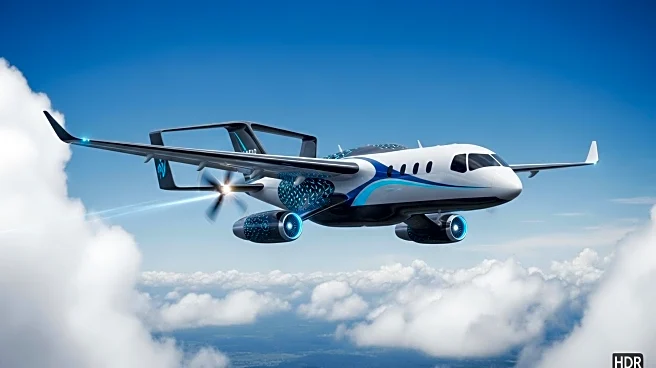What's Happening?
ATR is leading two projects under the Clean Aviation funding initiative, aiming to develop a hybrid-electric regional aircraft by the end of the decade. The projects, HERACLES and DEMETRA, are part of 12 programs sharing €945 million in funding, with €378 million from the European Union. These initiatives focus on advancing aircraft and engine concepts towards climate neutrality and sustainability. ATR plans to use a 72-600 testbed for its flagship HERACLES project, which aims to define an ultra-efficient hybrid-electric aircraft. The funding supports Clean Aviation's target of improving fuel efficiency by up to 30% and significantly reducing carbon emissions.
Why It's Important?
The development of hybrid-electric aircraft represents a crucial step towards reducing the aviation industry's environmental impact. By securing Clean Aviation funding, ATR and other manufacturers can accelerate the transition to more sustainable aviation technologies. This initiative supports the broader goal of achieving climate neutrality in aviation, which is essential for meeting international climate targets. The advancements in hybrid-electric propulsion could lead to significant reductions in fuel consumption and emissions, benefiting both the environment and the aviation industry economically.
What's Next?
The selected projects are set to commence early next year, with first flight tests expected in 2028-29. ATR and its partners, including Pratt & Whitney Canada, will focus on developing and testing hybrid-electric propulsion systems. The Clean Aviation joint undertaking will oversee the progress of these projects, ensuring they align with sustainability goals. As these technologies mature, they could pave the way for commercial deployment in regional aircraft by 2035, potentially transforming the aviation landscape.









